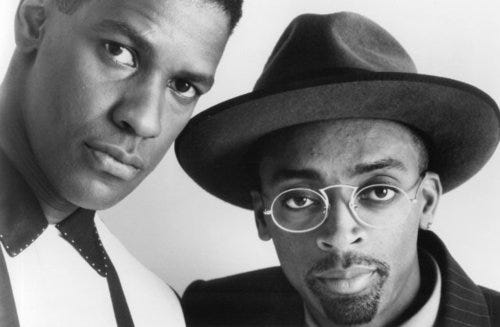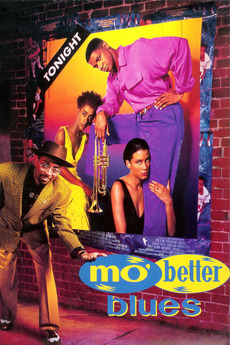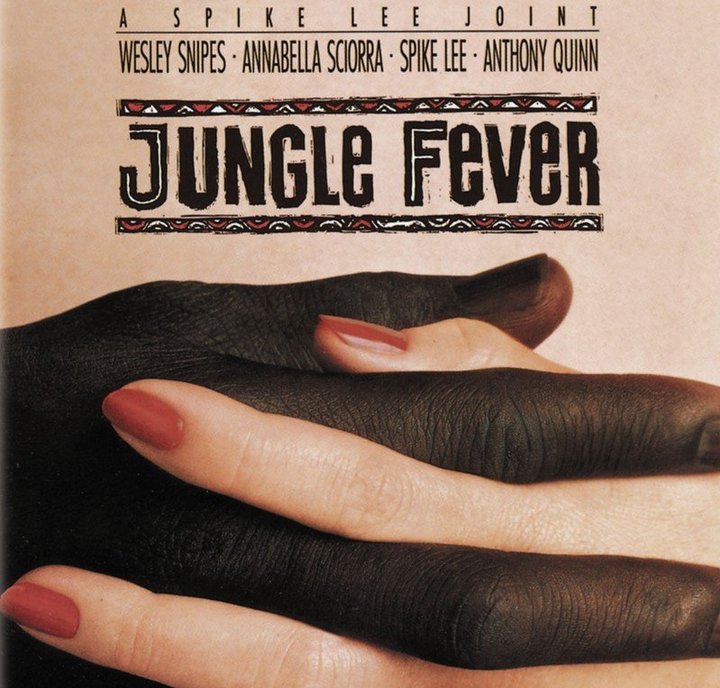
Good Morning POU!
We continue to look at the movies written and directed by Spike Lee.

(Goodness, Denzel was so damn fine in this movie)
Mo’ Better Blues is a 1990 musical drama film starring Denzel Washington, Wesley Snipes, and Spike Lee. It follows a period in the life of fictional jazz trumpeter Bleek Gilliam (played by Washington) as a series of bad decisions result in his jeopardizing both his relationships and his playing career.

The film focuses on themes of friendship, loyalty, honesty, cause-and-effect, and ultimately salvation.
The final scene uses exactly the same dialogue as the first, with changes only in the delivery of the dialogue, demonstrating the theme of cause and effect and fate.
Controversy
For his portrayal of Jewish nightclub owners Moe and Josh Flatbush, Lee drew the ire of the Anti Defamation League, B’nai B’rith, and other such Jewish organizations. The Anti-Defamation League claimed that the characterizations of the nightclub owners “dredge up an age-old and highly dangerous form of anti-Semitic stereotyping”, and “…disappointed that Spike Lee – whose success is largely due to his efforts to break down racial stereotypes and prejudice – has employed the same kind of tactics that he supposedly deplores.”
Lee eventually responded in an editorial in The New York Times, citing “a double standard at work in the accusations of anti-Semitism” given the long history of negative portrayals of African-Americans in film: “Not every black person is a pimp, murderer, prostitute, convict, rapist or drug addict, but that hasn’t stopped Hollywood from writing these roles for African-Americans”. Lee argued that even if the Flatbush brothers are stereotyped figures, their “10 minutes of screen time” is insignificant when compared to “100 years of Hollywood cinema… [and] a slew of really racist, anti-Semitic filmmakers”. Lee stated “Don’t hold me to a higher moral standard than the rest of my filmmaking colleagues… Now that young black filmmakers have arisen in the film industry, all of a sudden stereotypes are a big issue… I think it’s reaching the point where I’m getting reviewed, not my films.”
A year later, Spike hit us up with the provocative film Jungle Fever.

The movie starred Wesley Snipes as Flipper Purify and Annabella Sciorra as Angie Tucci. Flipper, who is married, begans a torrid affair with Angie, a temp with his employer. The film co-stars Ossie Davis and Ruby Dee as Flipper’s parents and Samuel L. Jackson as his drug addicted brother. As Lee’s fifth feature-length film, the film explores an interracial relationship —its conception and downfall—against the urban backdrop of the streets of New York City in the 1990s.
Throughout the film, Lee depicts several implicit and explicit examples of racism. He uses both types of examples to make the audience aware of everyday instances of racism.
In the film, Flipper’s brother, Gator, is a crack addict. He is constantly pestering his family members for money. His father has disowned him but his mother and Flipper still occasionally give him money, when he asks.
In an interview with Esquire, Jackson explains that he was able to effectively play the crack addict Gator because he had just gotten out of rehab for his own crack addiction. Because of his personal experience with the drug, Jackson was able to help Lee make Gator’s character seem more realistic by helping establish Gator’s antics and visibility in the film.
Before the opening credits begin, a dedication to Yusuf Hawkins is shown, who was killed on August 23, 1989, in Bensonhurst, New York, by Italian Americans who believed the youth was involved with a white girl in the neighborhood, though he was actually in the neighborhood to inquire about a used car for sale. According to the New York Daily News, “the attack had more to do with race than romance”, hence Lee’s reason for including the dedication.
